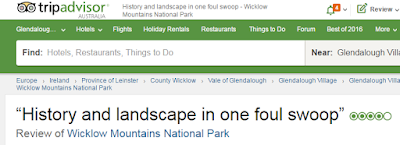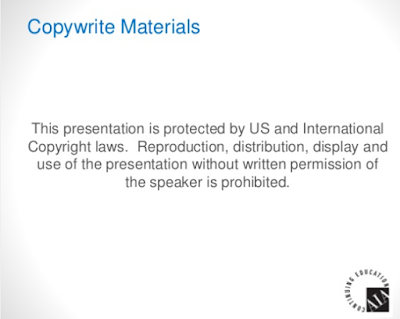One of the most annoying and lazy habits of some writers is to refer to the nebulous entity, “they”.
“They say travel broadens the mind, ...” [1]Nice sentiments, but who are 'they'?
"Don't listen to what they say ..."
“They” are not a trusted source or reliable reference for any fact or assertion. Using “they” to reaffirm an opinion not only insults your readers by expecting them to just consume whatever you write (because you are such an authority), it is also puts on show your inability or unwillingness to actually research something properly.
Okay, while it may be safely assumed that more than half your readers will just take your word for it, there is also a percentage who will ask, “says who?”. Thereafter, none of your writing carries any weight at all.
Simply substituting ‘scientists’ or ‘critics’ doesn’t work either unless you can point to exactly who these learned individuals are. If quoting ‘studies’, then what studies performed by whom and when.
Many of you reading this will recall your university essays and your lecturer coming down on you if your sources were not properly cited. Same deal with travel writing. Don’t assume your readers are uneducated and will blindly follow your beliefs. That would make you a politician.
If you use a quote, make sure you find the source and quote it as accurately as you can. Remember too, that sometimes the credited source may not actually be correct. A famous example is:
“Twenty years from now you will be more disappointed by the things you didn't do than by the ones you did do. So throw off the bowlines. Sail away from the safe harbor. Catch the trade winds in your sails. Explore. Dream. Discover.” - Mark Twain (not)This quote is now so common with travel companies promoting whatever they are flogging, it has become cliche. No one has actually checked to see if Twain did really write that. He didn’t. It is a relatively recent quote that appeared in a book by a significantly less famous author who gives credit to his mother.
Some famous misquotes are listed below. Their perpetuation does not make them true.
- “Insanity is doing the same thing over and over again and expecting different results.” — Albert Einstein (possible source: Rita Mae Brown)
- “You can fool some of the people all of the time, and all of the people some of the time, but you cannot fool all of the people all of the time.” —Abraham Lincoln (origins unknown. Bill Clinton used this quote attributing it to Lincoln)
- “Let them eat cake.” — Marie Antoinette (possible correct source: Jean-Jacques Rousseau)
[source]
 |
| The Internet has spread many false quotes. |
So, every time you are tempted to write “they say”, just imagine Margaret Thatcher asking “says who?”
=======
[1] "They say that travelling broadens your mind, but first you must have a mind."
Who said this? William GT Shedd or G K Chesterton?












